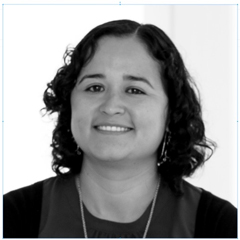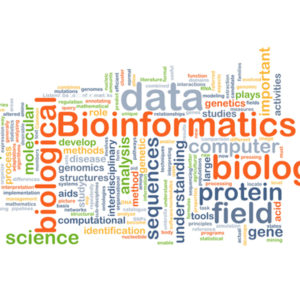Summer School in Bioinformatics (Virtual)
28 June–2 July 2021
Wellcome Genome Campus
Jointly run with EMBL-EBI
Summary
This event will be organised as a virtual course. It is hoped that it will return to an in-person course in 2022.
This popular computational course, run jointly with EMBL-EBI, provides an introduction to the use of bioinformatics in biological research, giving participants guidance for using bioinformatics in their work whilst also providing hands-on training in tools and resources appropriate to their research.
Participants will initially be introduced to bioinformatics theory and practice, including best practices for undertaking bioinformatics analysis, data management and reproducibility. To enable specific exploration of resources in their particular field of interest, participants will be divided into focused groups to work on a small project set by EMBL-EBI resource and research staff, ending in a presentation from each group on the final day of the course to bring together learnings from all participants.
This course is aimed at individuals working across life sciences who have little or no experience in bioinformatics. Applicants are expected to be at an early stage of using bioinformatics in their research with the need to develop their knowledge and skills further. No previous knowledge of programming is required for this course; group projects may give you the opportunity to learn basic programming, but participants will be supported in this by their mentors. Depending on your chosen project, an introductory programming tutorial may be given as homework prior to attending the course.
The course includes training and mentoring by experts from EMBL-EBI and external institutes.
Learning outcomes
Learning outcomes
Following course completion participants should be able to:
- Discuss applications of bioinformatics in biological research
- Browse, search, and retrieve biological data from public repositories
- Use appropriate bioinformatics tools to explore biological data
- Comprehend ways biological data can be stored, organised and integrated
Programme
This virtual course will run from Monday, 28 June until Friday, 2 July 2021 between 09:30-17:30 BST each day.
Participants will need to be available to attend the full duration of the Summer School to ensure full benefit from discussions, interactions and group project work.
During this course you will learn about:
- Bioinformatics as a science
- Designing bioinformatics studies
- Data management and reproducibility
- Basic tools and resources for bioinformatics
The exact range of resources and tools covered will vary depending on the group project undertaken; there will be no opportunity for you to analyse your own data during this course.
Group projects
A major element of this course is a group project, where participants will be placed in small groups to work together on a challenge set by trainers from EMBL-EBI. This allows people to explore the bioinformatics tools and resources available in their area of interest and apply them to a set problem, providing participants with hands-on experience relevant to their own research. The group work will culminate in a presentation session involving all participants on the final day of the course, giving an opportunity for wider discussion on the benefits and challenges of working with biological data.
Groups are mentored and supported by the trainers who set the initial challenge, but the groups will be responsible for driving their projects forward, with all members expected to take an active role. Groups are pre-organised before the course, and all group members will be sent some short “homework” in preparation for their project work prior to the start of the course.
Basic outlines of the projects on offer this year are given below. In your application you must indicate your first and second choice of project, based on which you think would benefit your research most. Not all projects may be offered, and final decisions on which projects will be run during the course will be made based on the number of applicants per project.
Projects offered in 2021:
- Genome variation across human populations
- Modelling cell signalling pathways
- Interpreting functional information from large scale protein structure data
- Networks and pathways
- Multiomic analysis of human disease
Project Details
1. Genome variation across human populations
Natural variation between individuals or between different human populations is a result of genome mutations throughout evolutionary history. Some mutations may become fixed because of their beneficial effect while most drift among individuals. During this project, you will investigate genomic variation between two separate human populations of European and Asian descent. Using sequence data from a number of individuals from each population, you will use a range of bioinformatics tools to discover variants that exist between them. In the second section of the project, you will attempt to analyse the functional consequences of the variants you have identified, linking them to phenotypes.
2. Modelling cell signalling pathways
Curating models of biological processes is an effective training in computational systems biology, where the curators gain an integrative knowledge of biological systems, modelling and bioinformatics. You will learn to encode and simulate ordinary differential equation models of signalling pathways from a recent publication using user-friendly software such as COPASI even without extensive mathematical background. You will learn to perform in silco experiments, new predictions and develop hypotheses. Furthermore, you will learn how to annotate models and re-use pre-existing models from open repositories such as BioModels.
3. Interpreting functional information from large scale protein structure data
This project will introduce you to the wealth of publicly available data in the Protein Data Bank (PDB) and give you the opportunity to investigate how large subsets of structure data can be used to analyse protein features and determine function. In the project you will learn how to: identify relevant protein structures, collate and interpret functional information, implement this process programmatically.
4. Networks and pathways
This project will cover typical bioinformatics analysis steps needed to put differentially expressed genes into a wider biological context. You will start with gene expression data (RNA-seq) to build an initial interaction network. Next, you will learn to combine public network datasets, identify key regulators of biological pathways and explore biological function through network analysis. You will get first-hand experience in integration and co-visualising with additional data and functional enrichment analysis. All this helps to put the initial results into a previously known context and provide hypotheses for potential follow up experiments. We will use Cytoscape, Expression Atlas, g:Profiler, StringDb, among other tools. We also may give a few R packages a try.
5. Multiomics analysis of human disease
In this project, you will explore the benefits of multiomics data integration to investigate the onset and progression of human disease. You will analyse plasma proteomics and metabolomics data from patients and healthy controls to identify immunological and physiological changes that are associated with disease severity. You will exploit differential analysis, dimensionality reduction methods and multiomics integration tools to identify features that distinguish different patient groups, perform functional enrichment analysis, and visualise metabolomics and proteomics correlation networks in Cytoscape. Finally, you will build basic machine learning models to predict the course of disease and to propose therapeutic interventions that are likely to be most effective at different disease stages
Instructors and speakers
Scientific Programme Committee

Sarah Morgan
EMBL-EBI, UK

Alexandra Holinski
EMBL-EBI, UK

Anna Swan
EMBL-EBI, UK

Lee Larcombe
Amphimatic, UK

Hedi Peterson
University of Tartu, Estonia
Keynote Speakers

Boris Adryan
Merck Group – Germany

Selene Fernandez Valverde
Cinestav UGA-Langebio – Mexico
Confirmed Instructors and Speakers
Alex Bateman – EMBL-EBI
Alexandra Holinski – EMBL-EBI
Anna Swan – EMBL-EBI
Patricia Carvajal Lopez – EMBL-EBI
Nikiforos Karamanis – EMBL-EBI
Lee Larcombe – Amphimatic
Peter McQuilton – Oxford e-Research Centre
Hedi Peterson – University of Tartu, Estonia
Wellcome Connecting Science
Lucy Criddle – Course Organiser
Jane Murphy – Scientific Programme Officer
How to apply
Prerequisites
No previous knowledge of programming is required for this course; group projects may give you the opportunity to learn basic programming, but participants will be supported in this by their mentors. Depending on your chosen project, an introductory programming tutorial may be given as homework prior to attending the course.
How to Apply
Please complete the online application form. Places are limited and will be awarded on merit. If you have any problems with the online application process, please contact us.
Please note: Applications must be supported by a recommendation from a scientific or clinical sponsor (e.g. supervisor, line manager or head of department). A request for a supporting statement will be sent to your nominated sponsor automatically during the application process. Applicants must ensure that their sponsor provides this supporting statement by the application deadline. Applications without a supporting statement cannot be considered.
Cost
| Virtual Course | Cost |
| Standard fee | £200 |
Bursaries
To increase the diversity of attendees, a number of bursaries are available from Wellcome Genome Campus Scientific Conferences.
Priority for registration bursaries will be given to those from under-resourced regions, especially for participants from Lower and Middle Income Countries (see list of countries here).
The following documents will need to be provided:
- CV
- A justification letter (explain how you will benefit from attending the course)
- A supporting letter from supervisor stating financial need
To apply, please send the above documents to the event organiser by the bursary deadline.
Please ensure you have completed the online application before applying for a bursary.
Application and bursary deadline is 13 April 2021
Additional funding opportunities
Visit our support page for additional financial support currently available.

